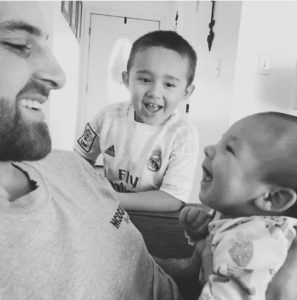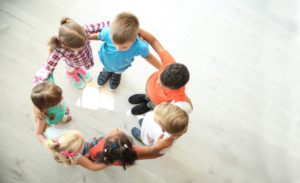Why is Communication Important?
 We recently celebrated my younger son’s third birthday! With his third birthday came a noticeable development in his language. He is quite articulate with thoughtful questions and comments. After a recent visit with his pediatrician he said, “My doctor takes care of me. He loves me.” The entire family is enjoying Samuel’s comments and questions. We are entertained by Samuel’s newly developed communication skills.
We recently celebrated my younger son’s third birthday! With his third birthday came a noticeable development in his language. He is quite articulate with thoughtful questions and comments. After a recent visit with his pediatrician he said, “My doctor takes care of me. He loves me.” The entire family is enjoying Samuel’s comments and questions. We are entertained by Samuel’s newly developed communication skills.
Communication skills start when children are babies. As parents and caregivers, we tune into our babies’ cries, jerky reflexes, facial expressions, and smiles. As parents, we are our child’s first teacher and we largely teach our children through modeling. Skills develop with our little ones when there is more teaching through dialogue.
In early learning, we highlight the importance of social emotional competence and skills. Communication goes hand in hand with social emotional capability. So why are communication skills important? How do we encourage good communication?
Good communication skills are important for all. For children it is key so that they may interact with peers and adults to have their needs met. I recall a time when my oldest son Karson was a little over a year old and was very ill. I remember thinking I wish Karson could tell me what is wrong and how I could help. He could not and it was frustrating for both of us. More reasons communication skills are important are:

-To be able to resolve conflicts
-For relationships, maintain and engage
-To learn, ask questions
-It is essential for school, work, and activities
As a modern mom being a good communicator has been very important as my family navigates many schedules, hot topics, ideas, projects, life demands, extended family, friends and many transitions. My biggest challenge has been to slow down to give that space for my children to communicate. I have been more mindful of making eye-contact, facial expressions, gestures, body language and being an active listener. I also try hard to assure I use the correct word phrases. I have a bilingual brain and focusing is necessary to ensure good communication.
Encourage good communication by reading to my children and engaging them in rich dialogue about many topics in life. I especially love teaching them about our Mexican culture and heritage as well as other cultures. It helps them to be more open with understanding different perspective and ways of living life. Asking them questions and giving them space and patience to verbally process helps. The challenge with this is my busy schedule so it is taking some time every day (okay almost everyday) to listen to them and ask questions. Weekends are great for interactive activities and car rides are a easy way to engage in enriching dialogue.
Language is a practiced skill. With more awareness and practice we can role model healthy communication and continue to learn as we transcend through life!
Check out the resources below on communication, until next time!

How to Support Your Child’s Communication Skills– The capacity to communicate is the ability and desire to connect with others by exchanging ideas and feelings, both verbally and non-verbally. Most children learn to communicate to get a need met or to establish and maintain interaction with a loved adult.
What is Active Listening- Active listening refers to a pattern of listening that keeps you engaged with your conversation partner in a positive way. It is the process of listening attentively while someone else speaks, paraphrasing and reflecting back what is said, and withholding judgment and advice.
Six Communication Skills Every Child Should Know- Teaching children how to communicate politely and effectively is one of a parent’s most important tasks.